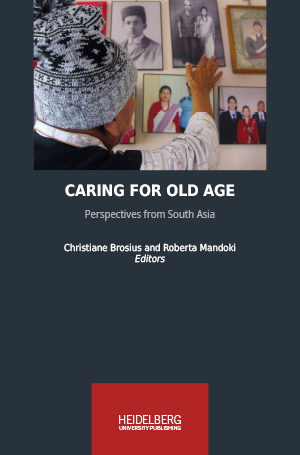Zitationsvorschlag
Lizenz (Kapitel)

Dieses Werk steht unter der Lizenz Creative Commons Namensnennung - Weitergabe unter gleichen Bedingungen 4.0 International.
Identifier (Buch)
Veröffentlicht
Assemblages of Care and Personhood: “Successful Ageing” across India and North America
Abstract This chapter brings the perspectives of older subjects from India into dialogue with the mushrooming public, academic, and biomedical discourse on successful ageing originating in North America and circulating around the globe. According to a dominant biomedical policy, and popular successful ageing discourse prevailing in North America, we each have the potential—and, indeed, the moral and political obligation—to make our own ageing “successful,” staving off the impending disabilities and burdens of later life. This successful ageing model promotes ideals of agelessness, independence, and individual responsibility for ageing well. Prevalent models of ageing well in India, in contrast, have emphasized interdependence within families, and accepting the fundamental condition of human transience. At the same time, Euro-American paradigms of successful, healthy, and active ageing are increasingly circulating within India. By probing models of ageing well traveling across India and North America, the chapter offers an image of care in old age as a complex assemblage of state policy agendas, cultural models of personhood, forms of inclusion and exclusion, and social-moral visions of how best to live.
Keywords successful ageing, care, Indian and US perspectives, assemblage, biopolitics






